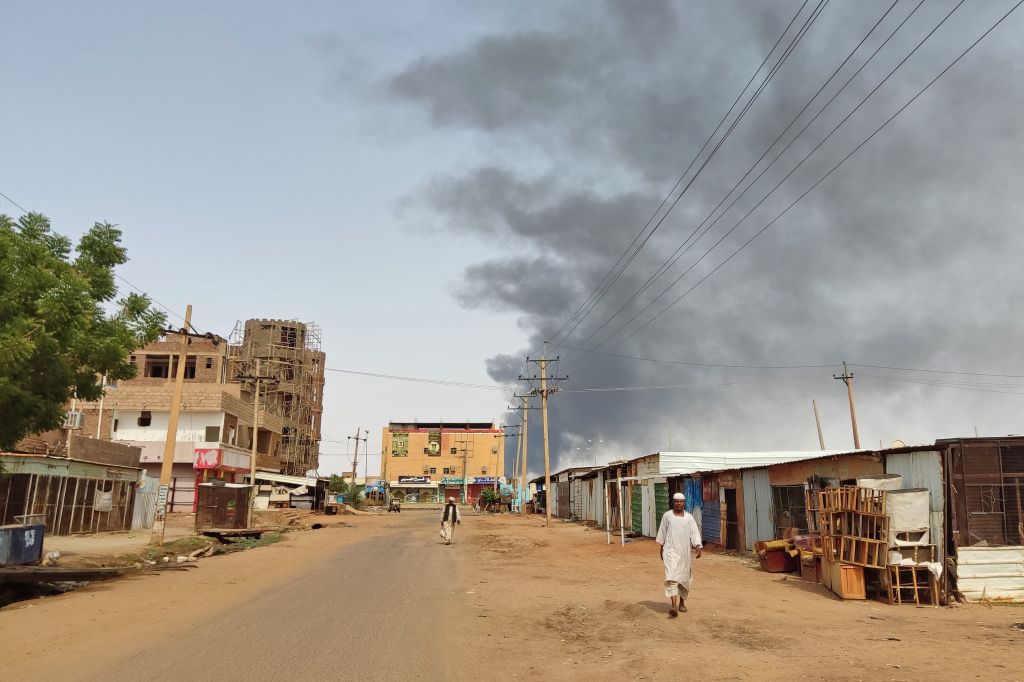ADF STAFF
The increasing violence between Sudan’s warring generals has prompted some experts to call for the African Union (AU) to step in with a “boots-on-the-ground” approach through its African Standby Force.
“Considering the escalating destruction of the conflict, the need is urgent to end hostilities, establish a humanitarian corridor and protect civilians and infrastructure,” analyst Maram Mahdi recently wrote for the Institute for Security Studies. “To achieve anything, such an approach must be tougher than current efforts.”
The African Standby Force (ASF) has a combined 25,000 troops contributed by AU members spread across the continent’s five economic regions. Since 2017, regional standby forces have been deployed to multiple countries, most recently to the Democratic Republic of the Congo.
Hostilities broke out on April 15 between Gen. Abdel Fattah al-Burhan, head of the Sudan Armed Forces (SAF) and de facto leader of the country, and his former deputy and longtime rival known as Hemedti, leader of the Rapid Support Forces (RSF) militia.
The fighting has devastated the capital, Khartoum, and reignited brutal violence in the Darfur region, where the RSF’s predecessor, the Janjaweed militia, operated a government-backed assault on the non-Arab population 20 years ago.
The warring sides have declared and then quickly broken numerous cease-fires, including one during Eid al-Adha in late June.
The AU Peace and Security Council (PSC) met the day after hostilities began and issued a statement condemning the fighting and demanding that both sides resolve their issues peacefully. Since then, the AU has largely been on the sidelines as other parties have tried to bring the warring sides to a negotiated settlement at talks in Jeddah, Saudi Arabia.
The conflict in Sudan is the exact type of situation that prompted the AU to create its doctrine of nonindifference and to stand up the standby force, according to Mahdi.
“A force with a quick reaction capacity would allow the AU to respond swiftly to Sudan’s current crisis, which has so far been challenging to contain,” Mahdi wrote for ISS.
Shortly after fighting broke out, Comoros President and current AU Chairman Azali Assoumani reported speaking by phone to al-Burhan and Hemedti on April 23 and 25, respectively. An AU statement a few days later described the talks as “constructive and promising.”
“However, it seems these ‘promising’ conversations failed to deliver any meaningful results,” analyst Taki Mhaka wrote recently for Al-Jazeera.
In May, the PSC adopted its roadmap for stopping hostilities, putting Sudan back on track toward a civilian government.
For that reason, the time seems ripe for a stronger intervention, according to Mahdi.
The AU need not impose a plan on Sudan; it simply needs to put the plan the Sudanese negotiated among themselves into action, Mahdi added. The latest of those plans, which was worked out in December 2022, fell by the wayside when fighting erupted.
Although the AU roadmap calls for encouraging Sudan’s neighbors to get involved in re-establishing peace, Mahdi recommends casting a wide net for peacekeepers.
“Competing regional interests and misalignment of external actors could easily undermine intervention efforts,” Mahdi wrote. “Thus, drawing troops from outside Sudan’s immediate neighboring countries, such as Kenya and Burundi, would be an added advantage.”

